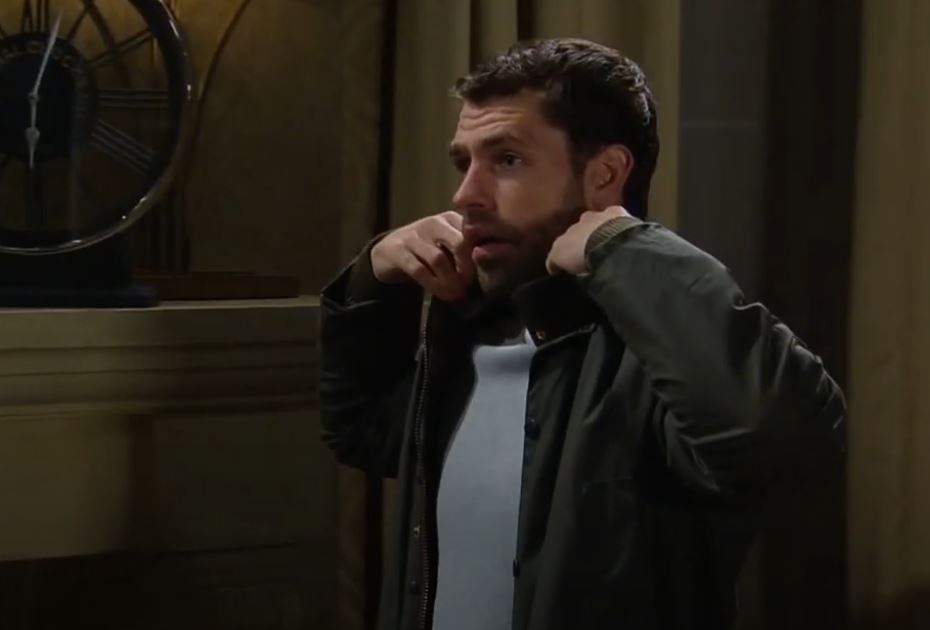
While the fact that Andy Sugden, played by Kelvin Fletcher, is Sarah Sugden’s father in Emmerdale hasn’t changed, the emotional background of that fact has changed significantly over time. His bond with Sarah is not only based on blood, but also on a complex web of decisions, errors, and fallout that still affects him even after he has been away from the show for a long time. Few other characters in the soap opera can claim the deeply layered legacy that Andy’s role as Sarah’s father anchors, as he connects generations of the Sugden and Dingle families.
Andy was born into an unstable family—Billy and Trisha Hopwood were troubled parents. He became a member of one of Emmerdale’s main families after being fostered and later adopted by Jack and Sarah Sugden. His journey over the last 20 years has featured remarkably similar arcs of adversity and redemption, occasionally reflecting the more general themes of broken families and second chances. Their daughter Sarah, named after Andy’s adoptive mother, was born as a result of his relationship with Debbie Dingle, which he formed when she was just fifteen years old. By connecting past sorrow to hope for the future, the naming itself was a strikingly sentimental act.
Andy Sugden (Sarah Sugden’s Dad)
| Detail | Information |
|---|---|
| Full Name | Andrew “Andy” Sugden (born Andrew Hopwood) |
| Portrayed By | Kelvin Fletcher |
| First Appearance | 4 July 1996 |
| Last Appearance | 16 August 2016 |
| Biological Parents | Billy Hopwood and Trisha Hopwood |
| Adoptive Parents | Jack Sugden and Sarah Sugden (Sr) |
| Children | Sarah Sugden and Jack Sugden (with Debbie Dingle) |
| Occupation | Farmer, Gamekeeper |
| Romantic Partners | Debbie Dingle, Katie Addyman, Jo Stiles, Bernice Blackstock |
| Marriages | Katie Addyman (2004, 2014), Jo Stiles (2008) |
| Notable Storylines | Arson, domestic abuse, wrongful imprisonment, fatherhood |
Andy had already undergone a profound emotional metamorphosis by the time Sarah was born. Andy was a young man battling demons while attempting to raise a child, struggling with the guilt of his part in Sarah Sr.’s death—having unintentionally started the barn fire that killed her. His desire for atonement motivated him to pursue custody of Sarah, but his capacity to be a good parent was repeatedly put to the test. Both Andy and Debbie were incredibly burdened by Sarah’s early medical emergencies, particularly her diagnosis of Fanconi anemia.
At the time, their choice to try for a second child—which ultimately resulted in the birth of Jack—was especially novel since it featured a plot that addressed actual moral dilemmas involving “saviour siblings.” The producers of Emmerdale handled this delicately, and the audience reacted sympathetically. Andy’s readiness to reconcile with Debbie for the benefit of their daughter demonstrated a rare degree of emotional development in soap opera characters with tumultuous pasts. His reputation among fans was greatly enhanced by this development, which presented him as a man who was making a concerted effort to move past his past transgressions.
Andy’s romantic life became more complicated over time, involving multiple marriages, domestic abuse, and infidelity. Despite being hopeful at first, his relationship with Katie Addyman was ultimately marred by treachery. Andy’s subsequent marriage to Jo Stiles ended in a pattern of abuse that gave him a much worse reputation. His character felt very human—flawed, but not unredeemable—because the show did not hold back from illustrating the psychological causes of his actions, such as depression and unresolved trauma.
Andy’s escape after being falsely accused of attempted murder was one of the storyline’s most emotionally charged moments. He was forced to leave the village after the ordeal, which was framed by Chrissie White, leaving Sarah without a father figure once more. Fans found this absence especially challenging because they had become used to Andy’s intensely personal involvement in Sarah’s life. The authors made a dramatic and narratively satisfying decision by leaving this exit open-ended, thereby creating a window of hope.
Since Andy left in 2016, Sarah’s character (now portrayed by Katie Hill) has grown into a fiercely independent teen who embodies the emotional intelligence and resilience that mirror her father’s complexity, even in the face of her health issues and reckless decisions. Viewers have been reminded that Sarah is very much her father’s daughter—strong but frequently driven by emotion—by her involvement with drug dealer Danny and her ongoing medical concerns. Particularly when considered in light of the impact of her missing father, these plots have managed to maintain their emotional resonance.
Fan speculation regarding Andy’s potential comeback has only grown since Kelvin Fletcher left Emmerdale to pursue a career in racing and reality television, most notably winning Strictly Come Dancing. The producers made the notably calculated decision to keep the character alive, which leaves the possibility of future storylines open. In interviews, Fletcher has alluded to the possibility of playing the part again, admitting that Andy’s story is not yet complete.
The emotional depth woven throughout their shared story is what makes Andy Sugden’s bond with Sarah so enduring. Beyond mere plot devices, their bond has endured through betrayal, hope, loss, and illness. It has emphasized how parenthood is frequently about effort, resiliency, and love put to the test in unusual situations rather than about perfection. Although Andy’s shortcomings were never concealed, they were constantly justified by his wish to shield his daughter, change his ways, and take responsibility for his past.
Few father-daughter relationships have been examined with such emotional depth over such a long period of time in contemporary British television. Viewers have been affected for a long time, evoking sympathy, discussion, and frequently heartache. Without Andy physically present, Sarah’s continuous development is still a potent narrative device that implies his shadow will continue to shape her choices, for better or worse.
